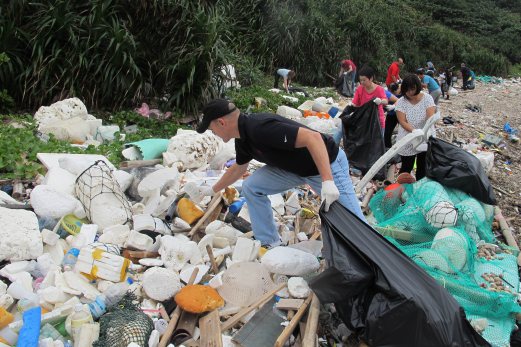
Thursday, June 30, 2016
Thanks to me who make the opening to the university to collaborate with Pulau banding Foundation. But many just a ceremonial no follow through and worst think they do not appreciate and recognise the opener or the starter. Ceremonial is not the starter but just advertisement. we must follow through by actions!!!


Today One professor proudly showed me that his H index is 16 and citation just over 800. Some people are lucky doing small thing, talk loud and people look high to them. Some time hear say is more effective. Those who are truly excellence they said not yet excellence without looking at true achievement. In general we are still not professional enough in promoting and recognise academician or professors.
Most people who get liver cancer get it in the setting of chronic liver disease (long-term liver damage called cirrhosis), which scars the liver and increases the risk for liver cancer. Conditions that cause cirrhosis are alcohol use/abuse, hepatitis B, and hepatitis C. The causes of liver cancer may be linked to environmental, dietary, or lifestyle factors.

Saturday, June 25, 2016
I have been attending this conference since 21 years ago. this series of conference really developed many young generations and groups of researchers. This is another group from Malaysia to continue the generations of researchers in ecotoxicology and marine pollution. Thanks to the initiator and the leader.

Saturday, June 18, 2016
In 2014, an estimated 1.4 million bottles, and 1,000 tonnes of plastic bags were thrown out each day. Read More : http://www.nst.com.my/news/2016/02/125381/plastic-paradise-hong-kongs-packaging-problem In conjunction with world ocean day we talked about how to reduce using p;astic bags so that less plastics go to the ocean and threaten marine lives.

http://www.nst.com.my/news/2016/02/125381/plastic-paradise-hong-kongs-packaging-problem
Plastic bags are one of the most visible signs of the pollution problem that extends across our planet. It is rare to see a strip of road, river bank or sea front that does not have a few plastic bags littering the environment. The result, besides being an eyesore, is often the death of wildlife. The problems that plastic bags cause, however, do not begin and end with the littering of the environment and the filling of landfill sites. Plastic bags are created using energy and non-renewable resources such as oil. The creation of each new plastic bag sucks a little more out of the environment. Manage your plastic bags well if you really need it! Recycle them.
Wednesday, June 15, 2016
Sunday, June 12, 2016
Monday, June 6, 2016
Sunday, June 5, 2016
continuous activities on environmental awareness programme in conjunction with World Ocean Day 2016

At Bagan Lalang with university's students and HSBC volunteers 5 June 2016
World Ocean Day 8 June 2016 Theme: Healthy oceans, healthy planet

The ocean is the heart of our planet. Like your heart pumping blood to every part of your body, the ocean connects people across the Earth, no matter where we live. The ocean regulates the climate, feeds millions of people every year, produces oxygen, is the home to an incredible array of wildlife, provides us with important medicines, and so much more! In order to ensure the health and safety of our communities and future generations, it’s imperative that we take the responsibility to care for the ocean as it cares for us.
This year, the theme is Healthy oceans, healthy planet, and we’re making a special effort to stop plastic pollution.
Plastic pollution is a serious threat because it degrades very slowly, polluting waterways for a very long time. In addition, plastic pollution impacts the health of aquatic animals because animals including zooplankton mistake the microbeads for food. Scientists also fear health impacts for humans.
The United Nations will celebrate World Oceans Day 2016 and recognize the winners of the Annual World Oceans Day Oceanic Photo Competition at an event on 8 June 2016 at the United Nations Headquarters.
Why do we celebrate World Oceans Day?
- To remind everyone of the major role the oceans have in everyday life. They are the lungs of our planet, providing most of the oxygen we breathe.
- To inform the public of the impact of human actions on the ocean.
- To develop a worldwide movement of citizens for the ocean.
- To mobilize and unite the world’s population on a project for the sustainable management of the world's oceans. They are a major source of food and medicines and a critical part of the biosphere.
- To celebrate together the beauty, the wealth and the promise of the ocean.
Saturday, June 4, 2016
Friday, June 3, 2016
Seminar, symposium or conferences are a place for scientists to meet and exchange ideas and findings.


with Dr. Vallaya Sutthikhum from Thailand
Subscribe to:
Comments (Atom)




































